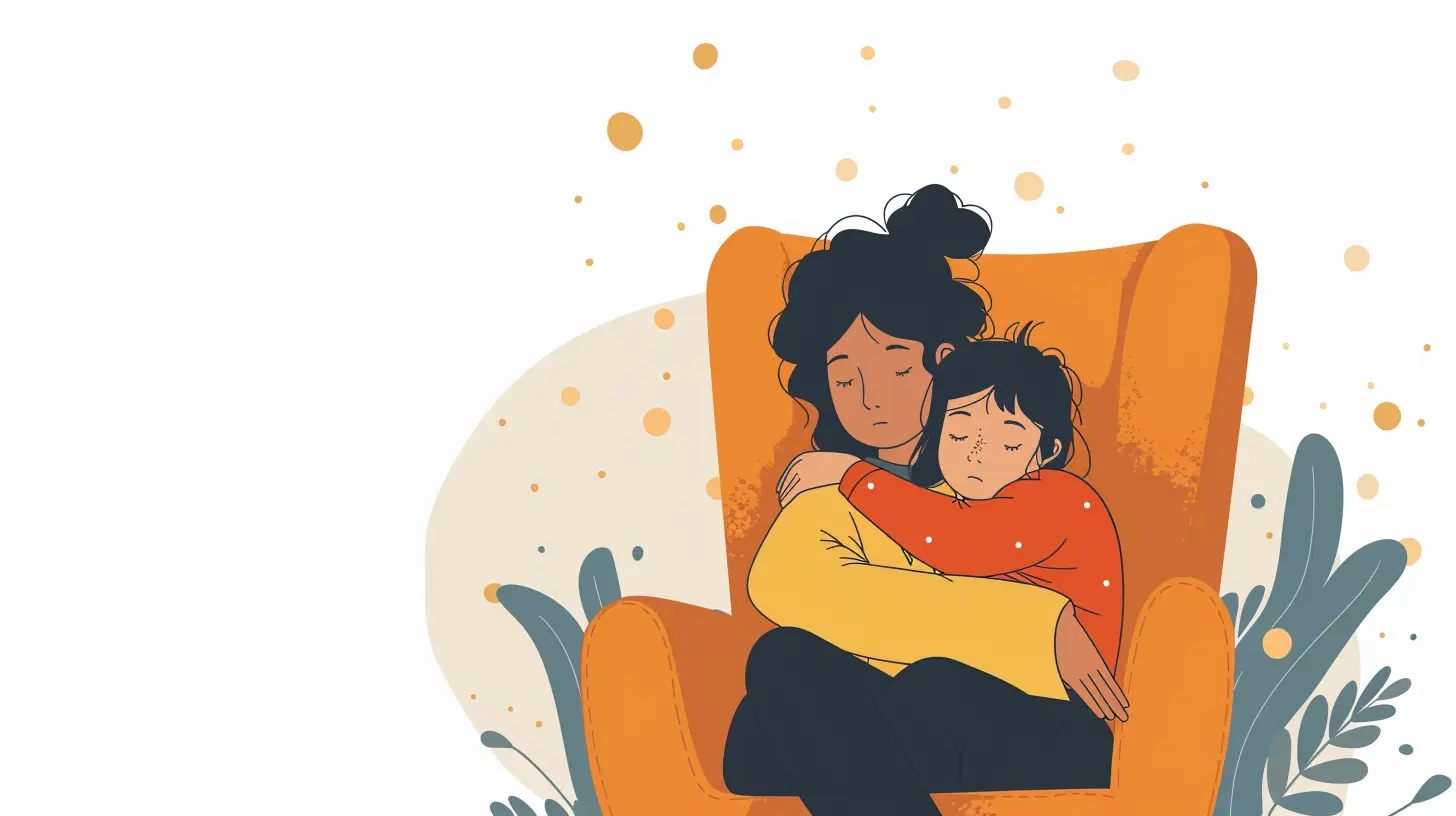4 April 2025
Co-parenting isn’t always easy. Emotionally, it can be a rollercoaster—full of ups, downs, and unexpected twists. But amidst the challenges, one thing must remain the top priority: your child's mental health.
Separation or divorce is tough on kids, and how you and your co-parent handle things can shape their emotional well-being for years to come. So, how do you ensure your child thrives despite the changes? Let’s dive into the key strategies to prioritize your child's mental health while navigating co-parenting. 
Understanding the Impact of Co-Parenting on a Child’s Mental Health
Before diving into strategies, let’s understand how co-parenting affects a child's emotional and psychological well-being.Children thrive in environments where they feel secure, loved, and emotionally supported. When parents separate, it can shake up their foundation, leaving them feeling anxious, confused, or even guilty. However, research shows that children of co-parents who work together in a healthy manner develop stronger coping skills, emotional resilience, and better relationships in the long run.
On the other hand, constant conflict, lack of communication, or inconsistency between co-parents can lead to increased stress, anxiety, and even behavioral issues in children.
So, the goal? Create a stable, healthy, and reassuring environment for your child—no matter what. 
1. Foster Open and Honest Communication
Communication is the cornerstone of any co-parenting relationship. The way you and your co-parent communicate sets the tone for your child's emotional security.With Your Child
- Encourage your child to express their feelings without fear of upsetting you or the other parent.- Reassure them that both parents love them and that their feelings are valid.
- Answer their questions honestly (but age-appropriately) to help them process the changes.
With Your Co-Parent
- Keep conversations child-focused and avoid bringing up past conflicts.- Stick to clear, respectful, and consistent communication—whether it's face-to-face, via text, or using a co-parenting app.
- Never use your child as a messenger or put them in the middle of adult conflicts.
A lack of communication can leave kids feeling torn between parents. Keeping things transparent and peaceful helps them feel secure. 
2. Maintain Consistency and Stability
One of the most common stressors for children in co-parenting arrangements is instability. Sudden changes in schedules, conflicting parenting styles, or uncertain living arrangements can make a child feel unsettled.How to Provide Stability
✅ Have a predictable custody schedule to minimize confusion.✅ Keep rules, routines, and expectations similar in both households.
✅ Provide reassurance by letting your child know what to expect.
Children thrive when they know they can count on a routine. It gives them a sense of control in an otherwise unpredictable situation. 
3. Protect Your Child from Conflict
Let’s be real—tension between co-parents is sometimes inevitable. But no matter what happens, your child should never be caught in the crossfire.What to Avoid
🚫 Arguing in front of your child.🚫 Speaking negatively about the other parent in their presence.
🚫 Forcing them to pick sides or feel guilty about loving both parents.
Children absorb everything, and ongoing conflict between parents can lead to anxiety, guilt, and emotional distress. Keeping disagreements private and civil is one of the greatest gifts you can give your child.
4. Support Your Child’s Emotional Needs
Your child's mental health depends on feeling emotionally safe and supported. Here’s how you can help them process their emotions:Encourage Emotional Expression
- Let them talk about their feelings without judgment.- Use books, art, or journaling as outlets for expression.
- Validate their emotions instead of dismissing them.
Monitor Behavior Changes
- Watch for signs of anxiety, mood swings, sleep issues, or changes in school performance.- If concerns arise, seek professional support from a therapist or counselor.
Children may not always verbalize their distress, so keeping an eye on their emotional and behavioral cues is crucial.
5. Keep a Unified Parenting Approach
Consistency is key when raising a child, and that includes parenting styles. When co-parents are drastically different in how they raise their child, it can create confusion and tension.Tips for Unified Parenting
✅ Discuss major decisions together (e.g., school, discipline, health).✅ Agree on core values, expectations, and boundaries.
✅ Present a united front when discussing rules with your child.
Of course, you won’t always see eye to eye—and that’s okay. But finding common ground helps your child feel secure and supported in both households.
6. Prioritize Self-Care as a Parent
You can’t pour from an empty cup. Your well-being matters just as much as your child’s. Parenting through separation or divorce is emotionally exhausting, and taking care of yourself is essential.Ways to Care for Yourself
💚 Seek support from friends, family, or a therapist.💚 Practice self-care through exercise, hobbies, or meditation.
💚 Set boundaries to avoid unnecessary conflict with your co-parent.
When you’re emotionally healthy, you’re better equipped to provide the love and stability your child needs.
7. Encourage a Healthy Relationship with Both Parents
Regardless of your personal feelings toward your co-parent, your child deserves to have a healthy relationship with both parents. Unless there are safety concerns, encouraging a strong bond with both parents can positively impact their emotional development.How to Support Their Bond
- Speak positively (or neutrally) about your co-parent in front of your child.- Encourage them to spend quality time with the other parent.
- Don’t make them feel guilty for enjoying time with both parents.
Your child should never feel like loving one parent means betraying the other. Give them the freedom to maintain close relationships without guilt or pressure.
8. Seek Professional Help When Needed
Sometimes, despite your best efforts, your child may struggle emotionally with the changes. Seeking professional help is not a sign of failure—it’s a proactive step toward helping them cope.When to Consider Therapy
🔹 If your child shows ongoing signs of distress, anxiety, or depression.🔹 If they're struggling with academic or social life due to emotional turmoil.
🔹 If they express feelings of hopelessness or extreme sadness.
A trained counselor or therapist can provide tools and strategies to help your child navigate their emotions in a healthy way.
Final Thoughts
Co-parenting isn’t about perfection; it’s about doing what’s best for your child’s emotional well-being. Will there be challenges? Absolutely. But with open communication, consistency, and a child-centered approach, you can create an environment where your child feels safe, loved, and emotionally secure.Remember: Your child’s mental health isn’t just a priority—it’s everything.
No matter how difficult the co-parenting journey gets, always keep their needs at the heart of every decision. Because in the end, what matters most is raising a happy, emotionally strong, and well-adjusted child.


